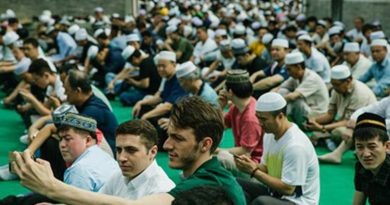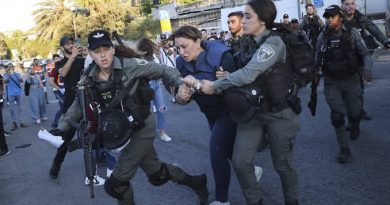| |
|---|
News Desk: Hezbollah leader Hassan Nasrallah said the October 7 attack was led by Hamas, and the decision was 100% Palestinian, and was done in complete secrecy. “Absolute secrecy is what ensured the brilliant success of the October 7 operation through the factor of surprise. Operation Al-Aqsa Flood was decided 100% Palestinian, its implementation was 100% Palestinian, and its owners hid it from everyone,” he said in his first speech since the start of Hamas militants and Israel war.

“The Hamas decision was right, wise and courageous, came in the right timing,” he added.
Celebratory gunshots rang out over Beirut as thousands packed into a square in the Lebanese capital’s southern suburbs to watch a televised speech by Nasrallah, the leader of the militant Lebanese Hezbollah group.
The speech came a day after the most significant escalation in clashes between Hezbollah and Israeli forces on the border since the war started and on the same day as a visit to Israel by the top US diplomat. US Secretary of State Antony Blinken met with Israeli Prime Minister Benjamin Netanyahu to urge protections for civilians in the fighting with Hamas, as Israeli troops tightened their encirclement of Gaza City.
In his lengthy remarks, Nasrallah said that one of the biggest mistakes Israel is making now in its war against Hamas in Gaza is pursuing goals that it cannot achieve.
“For a whole month, Israel could not offer a single military achievement,” Nasrallah said, adding that Israel can only get back hostages through negotiation.
Nasrallah also blamed the conflict and high Palestinian civilian death toll on the United States.
In his speech, Nasrallah praised the Hamas attack four weeks ago in which the militants attacked farming villages and military posts in southern Israel. More than 1,400 people were killed in Israel in the attack.
“This great, large-scale operation was purely the result of Palestinian planning and implementation,” Nasrallah said, suggesting his militia had no part in the attack. “The great secrecy made this operation greatly successful.”
Nasrallah’s speech had been widely anticipated throughout the region as a sign of whether the Israel-Hamas conflict would spiral into a regional war.
Since the beginning of the war, Hezbollah, an ally of Hamas, had taken calculated steps to keep Israel’s military busy on its border with Lebanon, but not to the extent of igniting an all-out war.
The Israeli military said seven of their soldiers and one civilian had been killed on the northern border as of Friday. More than 50 Hezbollah fighters and 10 militants with allied groups, as well as 10 civilians, including a Reuters journalist, have been killed on the Lebanese side of the border.
Israel considers the Iran-backed Lebanese Shiite militant group its most serious immediate threat, estimating that Hezbollah has around 150,000 rockets and missiles aimed at Israel, as well as drones and surface-to-air and surface-to-sea missiles.
But a full-on conflict would also be costly for Hezbollah, which fought a 34-day war with Israel in 2006 that ended with a draw — but not before Israeli bombing reduced swaths of southern Lebanon, the eastern Bekaa Valley and Beirut’s southern suburbs to rubble.
A new all-out war would also displace hundreds of thousands of Hezbollah’s supporters and cause wide damage at a time when Lebanon is in the throes of a historic four-year economic meltdown.




